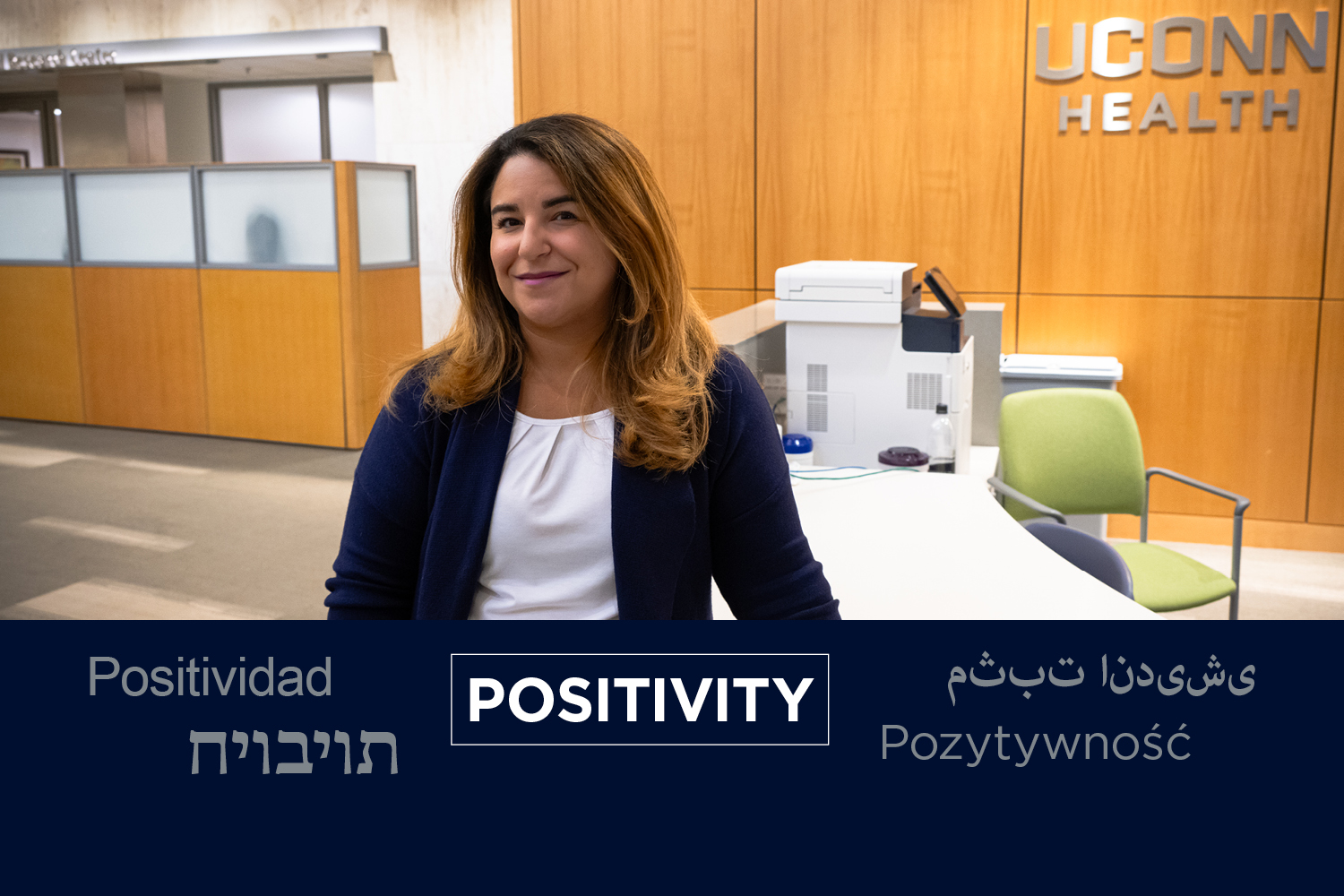The School of Business has combined a team of experts in technology, data analytics, and business implementation to lead a Digital Frontiers Initiative that will serve Connecticut businesses.
The Initiative, which is led by three UConn business professors with deep roots in business innovation and analysis, is available for industry partnerships, research, and workforce development. The leadership’s expertise includes artificial intelligence, cybersecurity, data analytics, and emerging technology.
“There is a tremendous appetite among Connecticut businesses for discovering and employing the benefits of AI and other advances for strategic advantage,’’ said School of Business Dean John A. Elliott.
“Before we officially announced the Initiative, we had a call from a representative of a Fortune 100 company seeking information about how we could help them,’’ Elliott said.
The Initiative is led by the Operations and Information Management Department (OPIM) at the School of Business and builds on the expertise of other successful UConn business programs.
“This is a chance for our department to increase outreach and industry collaboration efforts,’’ said professor Cuihong Li, OPIM department head. “We’ll have one, industry-facing unit supporting research, education and outreach.’’
“Connecticut companies need help to stay on top of all these changes, especially the booming AI revolution. Everyone wants to know how this tech will disrupt businesses and how it will bring new opportunities,’’ she said. “With our industry connections and collaborations, we will make a bigger impact in Connecticut and beyond.’’
Li said the Digital Frontiers Initiative is developing at the right time.
“Our faculty are leaders in the creation and dissemination of knowledge that extends the frontiers of business analytics, information systems and operations management in a digitally driven global economy,’’ she said. “Through rigorous research, innovative teaching, and collaborative industry engagement, we aim to develop a deep understanding of how information, technology and operations can be harnessed to solve critical business problems and drive sustainable growth. By bridging industry and academics, DFI serves as a pivotal component of the OPIM Department to accomplish that mission.’’
The Digital Frontiers Initiative combines the expertise of three long-standing programs: the Connecticut Information Technology Institute (CITI), the Center for Advancement of Business Analytics (CABA) and Innovate Labs (formerly OPIM Innovate). CITI will remain the umbrella organization, combining its programs with those of CABA and Innovate Labs to form the Digital Frontiers Initiative. The goal is to synchronize efforts to better serve businesses. The program will have a footprint at the Storrs, Stamford, and Hartford campuses.
The Initiative leadership includes:
- Executive Director Jon Moore, who created the School’s Innovate Labs which allows students and faculty to develop emerging technology skills, from flying drones to developing virtual reality skills. Started in Storrs, Innovate Labs will soon open a second location in Stamford, and later one in Hartford, to serve a growing interest.
- Academic Director Wei Chen, a professor and generative AI specialist who focuses on business applications and customization of the technology, as well as safety and ethics.
- Associate Director Jennifer Eigo, a professor with a strong background in strategic business collaborations who has fostered experiential learning opportunities that pair key Connecticut businesses with talented students.
All are supported by the department’s faculty, and the Initiative is closely integrated with OPIM’s education and research programs.
The Digital Frontiers Initiative is launching with a banquet on Friday in Storrs. The faculty team also recently led panel discussions at the March 27 AI Day program at the School of Business’ Graduate Business Learning Center in Hartford, co-sponsored by Launch[H] and Capgemini.
AI Doesn’t Replace Jobs, It Changes Them
Chen has spoken with corporate executives in Hartford and Stamford, and they are eager to customize AI for their companies and maximize its helpfulness for employees. While some of the people he meets are concerned that AI will replace people, Chen said he believes it will make work more enjoyable by eliminating some tedious tasks.
“At financial institutions, for instance, employees have to spend a great deal of time examining industry analysis, particularly earning- and financial- reports. Using AI summary tools, the job could be a lot easier and quicker,’’ he said.
“For people in sales, AI can produce a transcript of a sales call, digest it, and pick out important information in seconds. It can generate a report about the key people, products that interest them, and what their purchase process is,’’ Chen said. “That can save the salesperson hours of work.’’
Chen said AI is only as good as the people who use it. “AI is not perfect. For it to be high quality, you still need that human supervisor to take the knowledge from okay to good,’’ he said.
“AI can make an organization more productive and can be designed so that it works for us,’’ he said. “It isn’t human versus AI; it’s human with AI versus human without AI.’’
Moore: Like Doing Math with a Calculator
The growing opportunity of AI and data analytics has captured the interest of Connecticut companies looking for ways to bolster success, Moore said. They recognize the strategic advantage of AI and other technology and want to get ahead of their competitors.
“This ‘technology revolution’ is in its infancy, but it is quickly gaining traction,’’ he said. “I tell people it is like the difference between doing math by hand or using a calculator. We want to help businesses remain ahead of the competition and that competition is moving quickly.’’
“We will have a direct impact on Connecticut companies because we can train their employees, as well as entrepreneurs and small business owners,’’ he said.
Another critical part of the Initiative includes the work of Eigo, a professor and strategic collaborator, who has led multiple student-run capstone projects, and other collaborations, that serve Connecticut companies. Her student teams have helped many Connecticut companies, including Stanley Black & Decker in New Britain, Potoo Solutions in Norwalk, Connecticut Foodshare in Wallingford and CTtransit in Hartford.
In her new role, Eigo will develop relationships with companies with and develop projects that can benefit both the companies and students.
The Initiative will continue to provide students with hands-on business experience as they prepare to enter the rapidly changing and highly data-driven workplace. Students will participate in capstone projects, case challenges, training, and student consulting.
“When companies partner with us on projects, not only do they get quality work accomplished, they also invest in workforce development for Connecticut,’’ Eigo said. “Students build real-world experience while companies get to see the caliber of our students first hand. When hiring opportunities arise, our partners know where to find great candidates.’’
For more information on the program, please contact:dfi@uconn.edu



